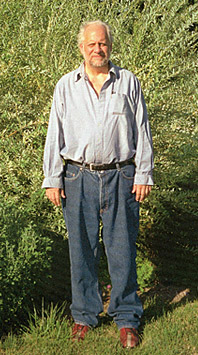The Growing Trend
The first day of spring kicks off the unofficial national gardening holiday everywhere in the northern hemisphere. In the US, gardeners are celebrating riotously.
For the largely quiet home gardening business, this year started with a bang—no, an explosion. On the heels of 2020, a breakthrough year for seed buying, 2021 has already produced sales unprecedented in our company’s 145-year old history.
Triggered by an ever-expanding population of new gardeners, the surging seed demand is not evidence of a speculative craze, like Tulipomania or tech stocks. To invert Alan Greenspan’s phrase, the tsunami of seed buying reflects “rational exuberance”. In addition to offering outsized nutrition, flavor, fragrance and beauty, seeds are exceptionally lucrative, delivering seed-to-vine-ripened produce values that would be the envy of Wall Street.
The coronavirus, confining restless Americans at home, afforded ample time to gaze out the picture window upon a monochrome vista of uniform lawns—the kind of vacuum nature abhors.
Seemingly at once, the view became a vision, and millions of Americans had a collective aha moment, prompting a newfound urge to grow backyard Edens abounding with life. For the first time in recent history, the American public turned away from their devices and screens and dismounted the digital hamster-wheel.
The petals of our collective unconscious were ruffled by the menace of Covid-19, stirring our souls very deeply. We returned to the primeval quest for safety and security to ensure our survival and that of both our species and our families.
Gardens first took root 10,000 years ago, give or take a millennium, when pioneering nomadic hunter-gatherers put down roots to create the first settlements. In so doing, they established the first planned conversion of solar radiation to human metabolic energy.
Before the domestication of plants, people’s lives were guided by the migration of animals, the prey which supplied meat for sustenance, fur and hide for covering and warmth, bone and sinew for tools and weapons. One drawback of this endless hunt: wild beasts in turn regarded humans as enticing, nourishing entrées.
Once people followed the example of plants, stayed put and produced their own sustenance, civilization burst into bloom. By planting gardens, we humans were at last able to focus better on ourselves and each other. With a more certain and abundant food supply, we could devote the energy and time expended on hunting and gathering to agriculture and communities with shelter and protection, civic and cultural life, specialized crafts and trades. The rest is history.
Such ancient moments are alive in us today. New and seasoned gardeners are sowing, growing and harvesting the widest gamut of vegetables, fruits and grains as never before. Indeed, this year the number of first-time Burpee customers—most having never gardened—exceeds that of our returning ones.
The coronavirus has rendered us less like animals and more like plants. We are changing from online vagabonds to garden-bound locals, growing a fresh, tasty food supply on our own terra firma. By partnering with plants—the genesis of civilization, and water—the solvent of creation, we rediscover both our roots and ourselves. Green peace.
Deeper in the green, one day we may create artificial chlorophyll-based energy, perpetually renewable with zero emissions—the Holy Grail of solar panels. At research laboratories such as the Joint Center for Artificial Photosynthesis at CalTech in the US and others in the UK, Australia and Belgium, scientists are using only sunlight, water and carbon dioxide in an attempt to produce unlimited clean energy.
Senator Bernie Sanders and Representative Alexandria Ocasio Cortes, please take note: with emission-free fuel and electrical energy based on the model of living plants producing their own food, “green” will never be a better “deal”. Domesticating photosynthesis would be biomimicry on such a profound level that it would make artificial intelligence seem trivial.
Today, we are experiencing a rebirth and reprise of one of the greatest cultural changes in history: the emergence of garden-centered communities. We are learning plants’ seemingly endless lessons and thereby glimpsing more deeply into both the universe and ourselves.
This year’s gardening revolution is marked by a significant transition—today’s equinox, when day surpasses night and, however riotously, spring begins. Let the sunshine in.
A version of this article appeared in The Allentown Morning Call and The Spokane Spokesman-Review
